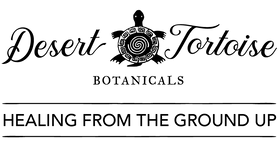Bioregional Herbalist Apprenticeship
The Bioregional Herbalist Apprenticeship is on hiatus as of 2023.
To learn more about the online Vitalist Herbalism course, click HERE.

Cultivating the Feeling Sense
Developing Sacred Skills (The Art of Learning)
Intimate Relationship with Plants
Context-Awareness
Cultivating the Feeling Sense
Our minds and bodies operate by and respond to patterns. When we receive impressions from our environment we begin to decode them based upon our internal programming. Are we apt to break them down in a rational manner, or have we maintained access to our “feeling sense”? - the intrinsic, seemingly invisible, connection we have to all of creation. It is present within each of us, and it is our right and responsibility to cultivate and nurture it consciously. Through the cultivation of the feeling sense, our worldview broadens, discernment is enhanced, and our trust in ourselves deepens.
Developing Sacred Skills (The Art of Learning)
Each person comes to knowledge in their own way - we all learn differently. But at the core of it all are some basic truths about learning. Respect is essential for all manners of deep learning and knowing. In the context of this Program, this includes respect for the relationship with plants, for the knowledge and experience that comes before us, for those we are enjoined with on this path, and for the inner motivation which propelled us to seek this experience and knowledge. That’s why I refer to these as “sacred skills,” for what else are we here for if not to learn about ourselves and the world we are in? These concepts will be dealt with at the Program’s outset, and re-visited throughout. Any interested applicants should read two of my previous posts on the subject: Choosing Experiential Learning, and Developing Your Sacred Skills.
Intimate Relationship with Plants
This is a fundamental aspect within the ancient tradition of being an ‘herbalist,’ or one who works with plants for healing. Despite the rhetoric of countless anthropologists and otherwise reductive scientists, the greater part of our extant knowledge of healing with plants does not exist merely through trial and error. I learned early on that very powerful healing can come from simply being present with plants. There is tremendous depth to the healing potential latent within these beings we call plants - as there is throughout the natural world; including ourselves. Becoming intimately involved with plants means peering into a window which reaches through the vastness of creation. The plants are aware, have personalities, and their own Nature. Intimacy serves to reveal, to set loose these stories upon our attention informing the interconnectedness of our lives.
The information gained from books about the clinical or botanical knowledge is only a part of the story. True personal healing emerges naturally once one has developed intimate relationship with a plant, with places on the Earth. To be truly intimate, there must be respect and honor present (two key aspects of developing one’s sacred skills). Through the skilled utilization of the feeling sense, one begins to negotiate this terrain with skill and ease bringing healing and richness into one’s life, and, potentially, the lives of others.
Context-Awareness
Discernment helps us to cut to the core of what is appropriate, authentic, and useful at this time. How do we choose herbs for healing under a given set of circumstances? How to choose one herb over another? Especially when they’re both “good for” the same things? Although overlap does exist, we can fine tune our approach through the use of plant energetics, through the use of the feeling sense, and through discernment which we’ve cultivated. This is referred to as adaptive expertise, and this arises out of contextual awareness.
My Thai massage (“nuad paen boran”) teacher in Thailand, Pichest Boonthomme, would often say, “You cannot cook on 2 stones; you need 3.” As to say, 3 points of contact are essential to maintain good footing. When learning plant energetics, we must always view the situation from three distinct perspectives: Person-Place-Herb. Through these 3 points of reference, we can better understand how and why someone responds to an herb at a particular place in time, or why someone may be manifesting these symptoms at this particular time. We change along with the seasons, and as we move from one habitat to another. All of this is taken into context.
Vitalist Principles for Clinical Applications
There is an inherent movement toward life within all living organisms. A spontaneous ordering which creates beauty from chaos. A basic tenet of Vitalism is that the organism is inherently healthy and strong. When this inherent strength or vibrant force is felt lacking, when one is ill, then there is an obstruction present within the organism. A vitalist must seek out, until its discovery, the ultimate obstruction to cure which limits the inherent expression of this vital force. Vitalist principles enable the practitioner, or the user of herbs, to see the picture more broadly. A soft focus may be necessary to discern patterns. Yet a deep, penetrating gaze into the heart of the problem may be offered through following the lead of the patient, or client, as they reveal the path leading back to their refuge of healing.

Find John's current offerings at www.johnjslattery.com/

